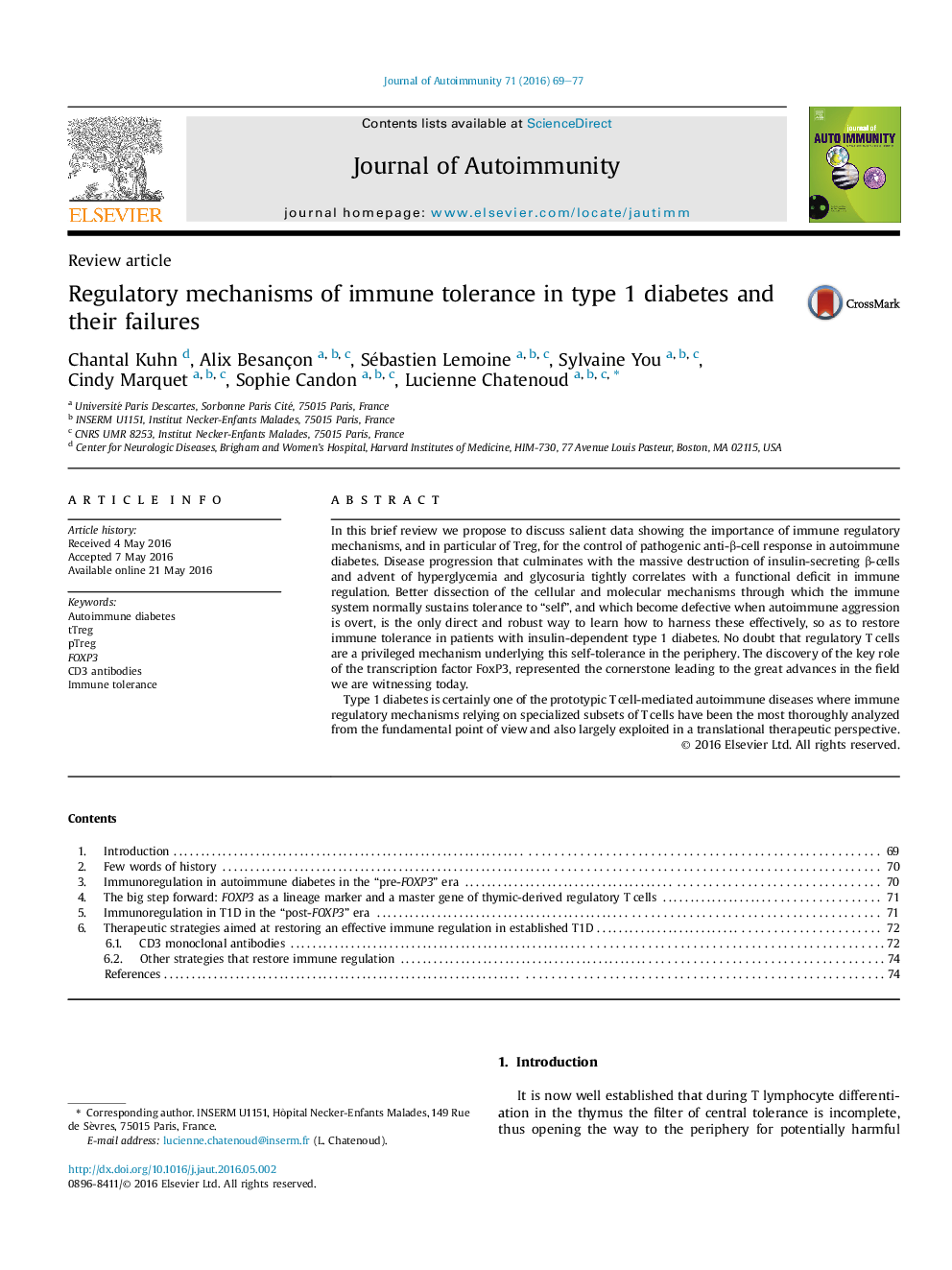| Article ID | Journal | Published Year | Pages | File Type |
|---|---|---|---|---|
| 3367658 | Journal of Autoimmunity | 2016 | 9 Pages |
•Progressive defective immune regulation is a hallmark of Type 1 diabetes.•Failure of immune regulation in Type 1 diabetes is linked to a faulty sensitivity of pathogenic cells to Treg-mediated suppression.•Both thymic and peripheral FoxP3+ Treg cells are key in the control of Type 1 diabetes onset and progression.•Drugs are available that reset immune regulation in Type 1 diabetes and halt disease progression.
In this brief review we propose to discuss salient data showing the importance of immune regulatory mechanisms, and in particular of Treg, for the control of pathogenic anti-β-cell response in autoimmune diabetes. Disease progression that culminates with the massive destruction of insulin-secreting β-cells and advent of hyperglycemia and glycosuria tightly correlates with a functional deficit in immune regulation. Better dissection of the cellular and molecular mechanisms through which the immune system normally sustains tolerance to “self”, and which become defective when autoimmune aggression is overt, is the only direct and robust way to learn how to harness these effectively, so as to restore immune tolerance in patients with insulin-dependent type 1 diabetes. No doubt that regulatory T cells are a privileged mechanism underlying this self-tolerance in the periphery. The discovery of the key role of the transcription factor FoxP3, represented the cornerstone leading to the great advances in the field we are witnessing today.Type 1 diabetes is certainly one of the prototypic T cell-mediated autoimmune diseases where immune regulatory mechanisms relying on specialized subsets of T cells have been the most thoroughly analyzed from the fundamental point of view and also largely exploited in a translational therapeutic perspective.
